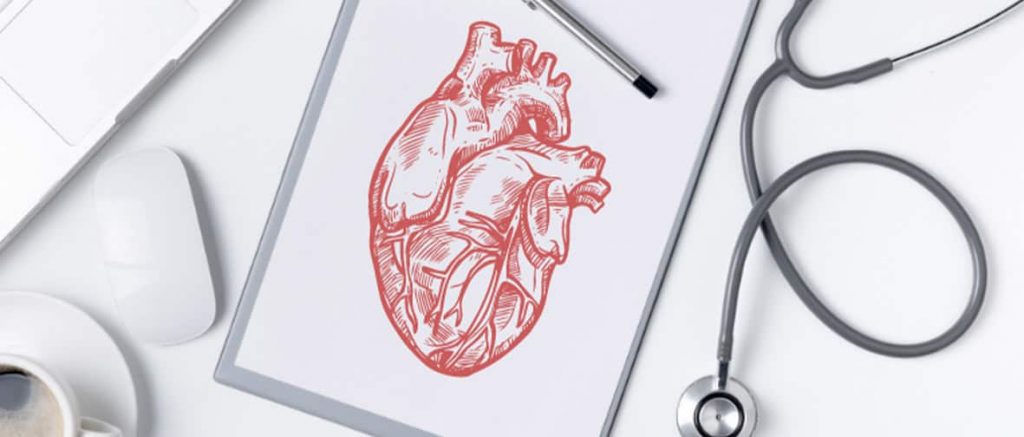
Is it time for a cardiovascular health check before the second wave?
There is now enough evidence that shows measures such as hand-washing, social distancing and wearing masks can lower our risk of catching COVID-19.
However, if we are unlucky enough to contract this virus, are there any ways to prepare and optimise our health beforehand to reduce the risk of a severe illness? There are some factors that are out of our control and cannot be changed, for example, increasing age and male sex – but what about other factors?
This article is the first in a series that will provide information on how you can optimise your health – not just in preparation for a possible second wave of COVID-19, but also to ensure a longer, healthy life.
Cardiovascular health
It is now becoming apparent that cardiovascular health problems can significantly increase the risk of an adverse outcome to COVID-19. Hypertension (high blood pressure), previous heart attacks and strokes, to name a few, have all been shown to place people at higher risk.
Studies are still ongoing as to why cardiovascular disease is such a significant risk factor. One theory is that the COVID-19 virus sticks to a particular protein in our body’s cell surfaces – a protein that is present in high numbers on cells within our cardiovascular system. By attaching to the protein, the virus can get into the cell and start replicating.
It is also clear that COVID-19 can cause direct injury to the cardiovascular system, therefore those with cardiovascular disease are already at a disadvantage compared with unaffected individuals.
Hypertension
If you are not sure what your blood pressure (BP) is, then it is important to get this checked. It is estimated that over 5 million people in the UK have undiagnosed blood pressure. Normal blood pressure is considered to be:
- Systolic (the top number): lower than 140 mmHg
- Diastolic (the bottom number): lower than 90 mmHg
Systolic blood pressure (the top number) indicates how much pressure your blood is exerting against your artery walls when the heart beats. Diastolic blood pressure (the second number) indicates how much pressure your blood is exerting against your artery walls while the heart is resting between beats.
Possible hypertension is defined as a top number between 140 and 180 mmHg and a bottom number between 90 and 110 mmHg, whilst severe hypertension is considered to be a top number higher than 180 mmHg and a bottom number higher than 110 mmHg.
People can often experience “white coat hypertension” where they have raised BP in a GP surgery or in a hospital setting but have lower readings at home. For this reason, a diagnosis of hypertension is not often diagnosed after one reading – unless it is very high. Home BP monitoring or 24-hour ambulatory BP monitoring (where the individual wears a cuff continuously for a 24hour period) are often used to confirm a diagnosis of hypertension.
It is important to note that if you have previously been given a diagnosis of white coat hypertension (particularly several years ago or more), then it should not be assumed that any high BP readings are due to this. In this instance it is advisable to ensure you check your blood pressure by checking it at home or organising 24-hour BP monitoring to rule out hypertension.
What if I am diagnosed with, or already have hypertension?
In this case, it is important to take any medication regularly that you have been given. Evidence so far suggests that your risk of a severe illness due to COVID is lowered by ensuring your high BP is controlled. Moreover, earlier detection of hypertension means there is less chance of the heart wall becoming thickened over time – this thickening can affect how well the heart can pump.
Improving diet and exercise can also greatly help lower your blood pressure, as can losing weight. Reducing salt in the diet can help lower the blood pressure, as can reducing alcohol intake.
It is also important to check your cholesterol. High cholesterol is linked to high blood pressure. This is because the excess cholesterol sticks to the inside of the arteries and causes them to harden and narrow. This results in increased blood pressure as the heart has to strain harder to pump through the narrowed arteries.
Are you interested in undergoing a cardiovascular or well-person health check? At Roc we can provide a range of health checks that incorporate a full cardiovascular assessment. Please get in touch for further information, our friendly team will be happy to help.
References
- https://www.bhf.org.uk/informationsupport/heart-matters-magazine/news/coronavirus-and-your-health
- Nishiga, M., Wang, D.W., Han, Y. et al. COVID-19 and cardiovascular disease: from basic mechanisms to clinical perspectives. Nat Rev Cardiol 17, 543–558 (2020).

